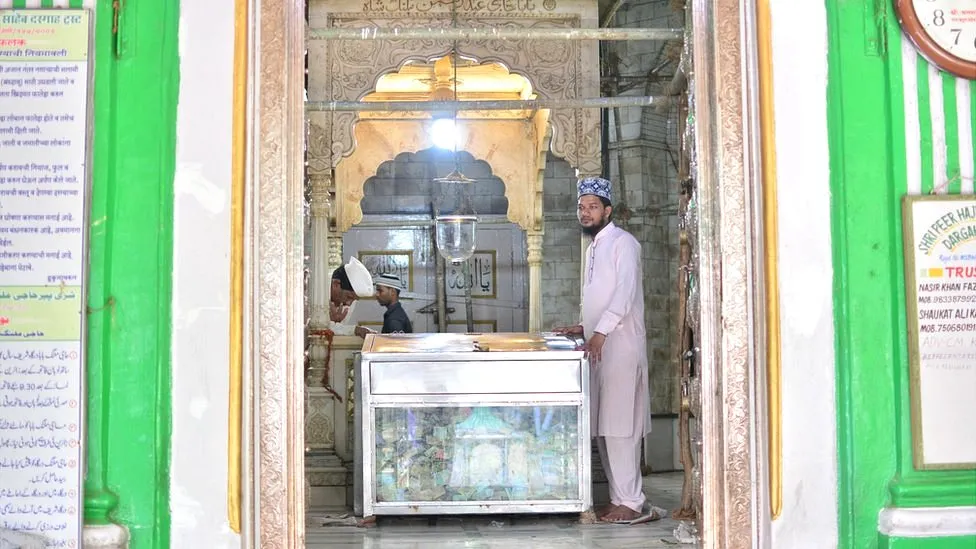Maharashtra CM vows to ‘liberate’ Muslim shrine Haji Malang for Hindus
 Mumbai: Maharashtra Chief Minister Eknath Shinde has ignited controversy by announcing his intent to ‘liberate’ the 700-year-old Haji Malang dargah, a historic Muslim shrine situated on the outskirts of Mumbai, exclusively for Hindus. The shrine, known for its Sufi heritage and cultural significance, has become the focal point of a heated religious dispute.
Mumbai: Maharashtra Chief Minister Eknath Shinde has ignited controversy by announcing his intent to ‘liberate’ the 700-year-old Haji Malang dargah, a historic Muslim shrine situated on the outskirts of Mumbai, exclusively for Hindus. The shrine, known for its Sufi heritage and cultural significance, has become the focal point of a heated religious dispute.
Shinde, making a bold assertion that the dargah was originally a Hindu temple, has pledged to reclaim it for the Hindu community. This declaration aligns with a growing trend in India where certain mosques and Muslim monuments are entangled in historical claims suggesting their construction involved the demolition of Hindu temples centuries ago.
The Haji Malang dargah, atop a hill, is believed to house the tomb of an Arab missionary who arrived in India over seven centuries ago. Despite being a symbol of assimilation and tolerance, it finds itself at the center of a contentious debate about its religious identity.
The Chief Minister’s stance echoes a campaign initiated in the 1980s by his political mentor, Anand Dighe, aimed at ‘reclaiming’ the shrine for Hindus. In 1996, Dighe led 20,000 Shiv Sena party workers into the dargah to perform a Hindu ritual, sparking tensions that persist to this day.
Hindu hardliners, referring to the site as Malanggad, have continued the practice of conducting Hindu rituals at the shrine on full moon days. This periodic activity has, on occasion, led to clashes with Muslim devotees and local residents.
Shinde’s announcement raises concerns about the shrinking space for religious minorities in the country, fueling debates about cultural assimilation and the delicate balance between preserving heritage and respecting diverse faiths. The move adds another layer to the complex tapestry of religious relations in contemporary India, prompting discussions on the importance of religious harmony and tolerance in a diverse and pluralistic society.








